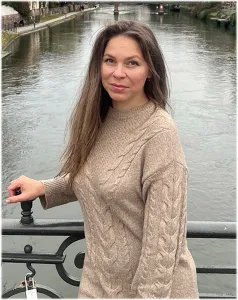
Petro Mohyla Black Sea National University (Mykolaiv, Ukraine)
Research project title: Russian psychological warfare against Ukraine
Research Abstract:
The events, currently taking place in the world, indicate that population of Europe continent is on a verge of transformations in the field of international security, including psychological security as well. During only previous decade we were witnesses of wide Russian information warfare against Ukraine, which has a destructive and destabilizing effect on societies in general and on the psyche of everyone in particular.
Throughout the Russian-Ukrainian hybrid war (since 2014), Russian Federation actively continues to use different psychological mechanisms of influence on the population of Ukraine, European Union and even its own people, with only difference that one of these influences aimed at discrediting of authorities in a country, undermining an authority of the military structures (Ukraine), the others – at manipulation of collective consciousness and outright chantage (EU countries) and – intimidation and formation in minds of the population figure of an ancient and irreconcilable enemy (Russia). Moreover, research project considers the problematic of separatism and psychological influence of patron-state on population of non-recognized territory. Research could be interesting for different specialists, because it is based on interdisciplinary (at least international relations and psychology) principles.
-
Biografische Angaben
Olesia Zvezdova is a guest researcher at Goethe University Frankfurt. She holds two Master`s Diploma in International relations (2010), in Psychology (2023) and PhD in Political Science (specification - political problems of international systems and global development). She has been lecturing at Black Sea National University (Ukraine) for six years and predominantly was engaged in lecturing such courses as "Geopolitics" and "Russian Foreign Policy". In 2022 she was forced to move to Germany because of war. -
Publikationen
Zvezdova, O. (2020). Tools for promoting European values in the context of civil servants training. Problems and process of reforming public administration education in Ukraine and EU countries. Wloclawek, Poland. December 2-13. Voronkova, V., Zvezdova, O. (2022). Theoretical and practical aspects of modern politics: challenges and reformatting of the global world. Cuestiones Políticas, 40 (75). https://doi.org/10.46398/cuestpol.4075.32 Zvezdova, O. (2023). Psychological warfare as a hybrid threat to the modern system of international security. Acta de Historia & Politica: Saeculum XXI, 5. https://doi.org/10.26693/ahpsxxi2023.05.063 Zvezdova, O. (2023). “Pridnestrovian Moldavian Republic”: Genesis of Issue and Influence on the International Relations. Acta De Historia & Politica: Saeculum XXI, 2. https://doi.org/10.26693/ahpsxxi2023.si.005

